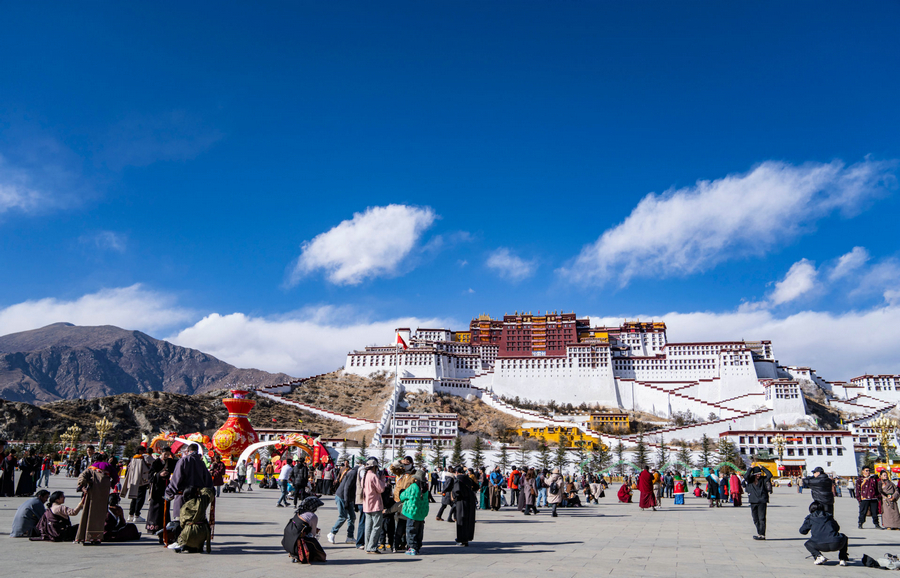Western propaganda cannot stop Xizang's progress
By Zhao Manfeng | chinadaily.com.cn | Updated: 2025-03-28 18:34

For decades, Western political powers—led by the United States and echoed by the European Parliament—have poured considerable resources into distorting the narrative on Xizang. Their accusations of "cultural erasure" and "human rights violations" crumble under the weight of history and reality.
What exactly is the "traditional way of life" that Western critics romanticize? The old Xizang was a feudal hellscape where serfs were treated as property—bought, sold, mutilated, or killed at their masters' whims. Monasteries and aristocrats held absolute power, while the majority lived in bondage. Is this the "tradition" the West seeks to protect?
The central government dismantled this oppressive system in 1959, emancipating 1 million serfs—95 percent of Tibet's population. Today, Tibetan children learn their native language alongside Mandarin and English, with more than 99 percent of schools in the region implementing bilingual education in Tibetan and Mandarin, they practice their culture freely, and enjoy modern education. The region boasts 97.73 percent compulsory education completion rate, and the average life expectancy has increased from 35.5 years in 1951 to 72.5 years —opportunities their ancestors could never imagine.
Yet Western media frames this progress as "oppression." Why? Because they judge by their own colonial playbook, where "preserving culture" often meant keeping people backward for exploitation.
China succeeded in uplifting Xizang. Infrastructure, poverty alleviation, and literacy rates have soared. The once-impoverished region now thrives with high-speed rail, renewable energy projects, and cultural preservation efforts.
The West insists on a paternalistic narrative where non-Western societies must remain frozen in time, forever "exotic" and subjugated. China proves otherwise: modernization and cultural preservation can coexist.
The region's GDP has grown from 174 million yuan in 1959 to 276.49 billion yuan ($39.5 billion) in 2024. Currently, Xizang is home to 106 national-level intangible cultural heritage projects and 96 national-level representative inheritors. At the autonomous region level, there are 460 representative intangible cultural heritage projects and 522 representative inheritors. The Gesar epic tradition, Tibetan opera, and Tibetan traditional medicine bathing methods have been listed in the UNESCO Intangible Cultural Heritage of Humanity.
The emancipation of a million serfs in Xizang is a profound event in human history and a significant milestone in the history of human civilization. The West, with its own bloody record of slavery and colonialism, has neither the moral authority nor the practical achievement to lecture China on human rights.
As the Chinese saying goes: "The cries of apes on both banks cannot stop the swift boat from gliding past ten thousand hills." No amount of Western propaganda can undo Xizang's progress.
























